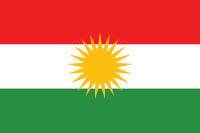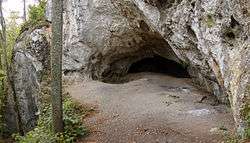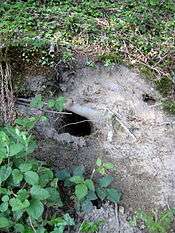Definify.com
Webster 1913 Edition
ala
a′la
Definition 2026
Ala
Ala
Polish
Pronunciation
- IPA(key): /ˈa.la/
Proper noun
Ala f
Declension
ala
ala
English
Noun
- (zoology) A wing or winglike structure.
- (anatomy) A winglike anatomical process or part, especially of bone.
- (botany) The flattened border of some stems, fruits, and seeds, or one of the two side petals of certain flowers in the pea family.
- (architecture) In ancient Rome, a small room opening into a larger room or courtyard.
References
-
 ala on Wikipedia.Wikipedia
ala on Wikipedia.Wikipedia
- “ala” in The American Heritage Dictionary of the English Language, Fourth Edition, Houghton Mifflin Company, 2000.
- “ala” in Dictionary.com Unabridged, v1.0.1, Lexico Publishing Group, 2006.
Etymology 2
From French à la, by way of its English derivation a la.
Preposition
ala
- (colloquial) Alternative form of a la
- 2006, WorstPreviews.com, Film review:
- The film is told in reverse ala Memento.
- 2008, Film Threat, Film review:
- […] interactive plasma screens with flashing digits and what not, ala “Minority Report,” […]
- 2011, The Washington Post’s blog The Fix, Politics article:
- […] we might be getting to the point where Palin is a bona fide liability - ala Pelosi - for the GOP.
- 2011, The Huffington Post, Business article:
- […] the NYSE didn't implode ala Merrill […]
- 2006, WorstPreviews.com, Film review:
References
- “ala” examples at Wordnik
Anagrams
Catalan
Pronunciation
- IPA(key): /ˈaɫə/
Etymology
From Old Provençal, from Latin āla (“wing”).
Noun
ala f (plural ales)
Estonian
Etymology
From Proto-Finnic *ala.
Noun
ala (genitive ala, partitive ala)
Declension
| singular | plural | |
|---|---|---|
| nominative | ala | alad |
| accusative | ala | alad |
| genitive | ala | alade |
| partitive | ala | alu alasid |
| illative | alla alasse |
aladesse alusse |
| inessive | alas | alades alus |
| elative | alast | aladest alust |
| allative | alale | aladele alule |
| adessive | alal | aladel alul |
| ablative | alalt | aladelt alult |
| translative | alaks | aladeks aluks |
| terminative | alani | aladeni |
| essive | alana | aladena |
| abessive | alata | aladeta |
| comitative | alaga | aladega |
Faroese
Etymology
From Old Norse ala, from Proto-Germanic *alaną (“to nourish, grow”), from Proto-Indo-European *al- (“to grow”).
Verb
ala (third person singular past indicative ól, third person plural past indicative ólu, supine alið)
- (kvæði) to give birth to
- to foster
- to nourish
- to breed
Conjugation
Finnish
(index al)
Etymology 1
From Proto-Finnic *ala.
Pronunciation
- IPA(key): /ˈɑlɑ/
- Hyphenation: a‧la
- Rhymes: -ɑlɑ
Noun
ala
- area of work or study
- (in working life, in sciences) field
- branch or sector (of business, studies, etc.)
Declension
| Inflection of ala (Kotus type 9/kala, no gradation) | |||
|---|---|---|---|
| nominative | ala | alat | |
| genitive | alan | alojen | |
| partitive | alaa | aloja | |
| illative | alaan | aloihin | |
| singular | plural | ||
| nominative | ala | alat | |
| accusative | nom. | ala | alat |
| gen. | alan | ||
| genitive | alan | alojen alainrare |
|
| partitive | alaa | aloja | |
| inessive | alassa | aloissa | |
| elative | alasta | aloista | |
| illative | alaan | aloihin | |
| adessive | alalla | aloilla | |
| ablative | alalta | aloilta | |
| allative | alalle | aloille | |
| essive | alana | aloina | |
| translative | alaksi | aloiksi | |
| instructive | — | aloin | |
| abessive | alatta | aloitta | |
| comitative | — | aloineen | |
Compounds
|
|
Etymology 2
Pronunciation
- IPA(key): /ˈɑlɑˣ/
- Hyphenation: a‧la
Verb
ala
- Indicative present connegative form of alkaa.
- Second-person singular imperative present form of alkaa.
- Second-person singular imperative present connegative form of alkaa.
Galician
Etymology
Borrowing from Latin āla. Compare the inherited á.
Noun
ala f (plural alas)
Synonyms
Hawaiian
Etymology
From Proto-Polynesian *sala, from Proto-Oceanic *salan, from Proto-Eastern Malayo-Polynesian *zalan, from Proto-Central-Eastern Malayo-Polynesian *zalan, from Proto-Malayo-Polynesian *zalan, from Proto-Austronesian *zalan.
Noun
ala
Icelandic
Pronunciation
- IPA(key): /aːla/
- Rhymes: -aːla
Etymology 1
From Old Norse ala, from Proto-Germanic *alaną (“to nourish, grow”), from Proto-Indo-European *al- (“to grow”).
Verb
ala (strong verb, third-person singular past indicative ól, third-person plural past indicative ólu, supine alið)
- (with accusative) to bear, to give birth to
- (with accusative) to foster
- (with accusative) to feed, to nourish
Conjugation
| infinitive (nafnháttur) |
að ala | ||||
|---|---|---|---|---|---|
| supine (sagnbót) |
alið | ||||
| present participle (lýsingarháttur nútíðar) |
alandi | ||||
| indicative (framsöguháttur) |
subjunctive (viðtengingarháttur) |
||||
| present (nútíð) |
ég el | við ölum | present (nútíð) |
ég ali | við ölum |
| þú elur | þið alið | þú alir | þið alið | ||
| hann, hún, það elur | þeir, þær, þau ala | hann, hún, það ali | þeir, þær, þau ali | ||
| past (þátíð) |
ég ól | við ólum | past (þátíð) |
ég æli | við ælum |
| þú ólst | þið óluð | þú ælir | þið æluð | ||
| hann, hún, það ól | þeir, þær, þau ólu | hann, hún, það æli | þeir, þær, þau ælu | ||
| imperative (boðháttur) |
al (þú) | alið (þið) | |||
| Forms with appended personal pronoun | |||||
| aldu | aliði * | ||||
| * Spoken form, usually not written; in writing, the unappended plural form (optionally followed by the full pronoun) is preferred. | |||||
| infinitive (nafnháttur) |
að alast | ||||
|---|---|---|---|---|---|
| supine (sagnbót) |
alist | ||||
| present participle (lýsingarháttur nútíðar) |
alandist ** ** the mediopassive present participle is extremely rare and normally not used; it is never used attributively or predicatively, only for explicatory subclauses |
||||
| indicative (framsöguháttur) |
subjunctive (viðtengingarháttur) |
||||
| present (nútíð) |
ég elst | við ölumst | present (nútíð) |
ég alist | við ölumst |
| þú elst | þið alist | þú alist | þið alist | ||
| hann, hún, það elst | þeir, þær, þau alast | hann, hún, það alist | þeir, þær, þau alist | ||
| past (þátíð) |
ég ólst | við ólumst | past (þátíð) |
ég ælist | við ælumst |
| þú ólst | þið ólust | þú ælist | þið ælust | ||
| hann, hún, það ólst | þeir, þær, þau ólust | hann, hún, það ælist | þeir, þær, þau ælust | ||
| imperative (boðháttur) |
alst (þú) | alist (þið) | |||
| Forms with appended personal pronoun | |||||
| alstu | alisti * | ||||
| * Spoken form, usually not written; in writing, the unappended plural form (optionally followed by the full pronoun) is preferred. | |||||
| strong declension (sterk beyging) |
singular (eintala) | plural (fleirtala) | |||||
|---|---|---|---|---|---|---|---|
| masculine (karlkyn) |
feminine (kvenkyn) |
neuter (hvorugkyn) |
masculine (karlkyn) |
feminine (kvenkyn) |
neuter (hvorugkyn) |
||
| nominative (nefnifall) |
alinn | alin | alið | aldir | aldar | alin | |
| accusative (þolfall) |
alinn | alda | alið | alda | aldar | alin | |
| dative (þágufall) |
öldum | alinni | öldu | öldum | öldum | öldum | |
| genitive (eignarfall) |
alins | alinnar | alins | alinna | alinna | alinna | |
| weak declension (veik beyging) |
singular (eintala) | plural (fleirtala) | |||||
| masculine (karlkyn) |
feminine (kvenkyn) |
neuter (hvorugkyn) |
masculine (karlkyn) |
feminine (kvenkyn) |
neuter (hvorugkyn) |
||
| nominative (nefnifall) |
aldi | alda | alda | öldu | öldu | öldu | |
| accusative (þolfall) |
alda | öldu | alda | öldu | öldu | öldu | |
| dative (þágufall) |
alda | öldu | alda | öldu | öldu | öldu | |
| genitive (eignarfall) |
alda | öldu | alda | öldu | öldu | öldu | |
Derived terms
Etymology 2
Noun
ala
- indefinite genitive plural of alur
Italian
Etymology
Pronunciation
- IPA(key): [ˈala]
Noun
ala f (plural ali, poetic ale)
Synonyms
- alia (archaic, slang)
Related terms
Verb
ala
Jarai
Etymology
From Proto-Malayo-Polynesian *hulaR, from Proto-Austronesian *SulaR
Noun
(classifier drơi) ala
Kurdish

Noun
ala f
- flag (piece of cloth)
This Kurdish entry was created from the translations listed at flag. It may be less reliable than other entries, and may be missing parts of speech or additional senses. Please also see ala in the Kurdish Wiktionary. This notice will be removed when the entry is checked. (more information) April 2008
Latin
Etymology
For earlier *axla, from axis, from Proto-Indo-European *h₂eḱs- (“axis”).
Pronunciation
- (Classical) IPA(key): /ˈaː.la/, [ˈaː.ɫa]
- (Ecclesiastical) IPA(key): /ˈa.la/, [ˈaː.la]
Noun
āla f (genitive ālae); first declension
- wing (as of a bird)
- armpit
- the hollow where a limb joins the trunk of an animal or tree
- (architecture) wings off the main room, side porches, waiting areas
- (military) wing of an army, cavalry force (usually deployed on an army's flank)
- vocative singular of āla
ālā f
- ablative singular of āla
Inflection
First declension.
| Case | Singular | Plural |
|---|---|---|
| nominative | āla | ālae |
| genitive | ālae | ālārum |
| dative | ālae | ālīs |
| accusative | ālam | ālās |
| ablative | ālā | ālīs |
| vocative | āla | ālae |
Derived terms
Descendants
References
- ala in Charlton T. Lewis and Charles Short (1879) A Latin Dictionary, Oxford: Clarendon Press
- ala in Charlton T. Lewis (1891) An Elementary Latin Dictionary, New York: Harper & Brothers
- ala in Geir T. Zoëga (1910) A Concise Dictionary of Old Icelandic, Oxford: Clarendon Press
- ALA in Charles du Fresne du Cange’s Glossarium Mediæ et Infimæ Latinitatis (augmented edition, 1883–1887)
- ala in Harry Thurston Peck, editor (1898) Harper's Dictionary of Classical Antiquities, New York: Harper & Brothers
- ala in William Smith et al., editor (1890) A Dictionary of Greek and Roman Antiquities, London: William Wayte. G. E. Marindin
Latvian


Etymology
The usual theory considers ala to be a borrowing from Middle Low German hol (“depth, hole, cave”), or maybe from the same form in Middle Dutch or German Low German (East Frisian); cf. German Höhle (“cave”); note, however, that this Germanic word is masculine, from which a feminine a-stem borrowing into Latvian would seem unlikely.
A different view suggests that ala could also reflex an old Proto-Indo-European stem *h₁el-, *ol-, *al- “to flow, to drain” with various Baltic reflexes: dialectal Latvian alots, alogs (standarad avots) “(water) source,” alksna, aluksna “miry, swampy place” (cf. placenames like Alūksne, Alūkstes), Lithuanian alė́ti “to flow, to drip.” The original meaning of ala would thus have been “(water) source”, from which “place (e.g., cave, rift, pit) from which water springs” and finally simply “cave,” possibly under the influence of the aforementioned Germanic words.[1]
Pronunciation
- IPA(key): [ala]
Noun
ala f (4th declension)
- cave (space or cavity formed underground, especially between rocks, or in the face of a cliff or hillside)
- klinšu alas ― rock caves
- pazemes ala ― subterranean cave
- alu labirinti ― cave labyrinths
- alu cilvēks ― caveman
- alu zīmējumi ― cave drawings, paintings
- Abhāzijā atrodas ala, kuras labirinti ir vairāk nekā trīs kilometrus gari ― in Abkhazia there is a cave with labyrinths longer than three kilometers
- burrow, hole, lair, den (the dwelling of some animals, in the form of a cavity with one or many exits)
- peles, lapsas alas' ― mice, fox holes
- āpšu, trušu alas ― badger, rabbit holes, burrows
- rakt alu ― to dig a hole, burrow
- nekā sevišķa tur neredzēja, izņemot nelielu caurumu zemē... likās tā kā kurmja ala ― there was nothing special to see there, except a small whole on the ground... it seemed to be a molehill (lit. hole)
Declension
Derived terms
See also
References
- ↑ Karulis, Konstantīns (1992), “ala”, in Latviešu Etimoloģijas Vārdnīca (in Latvian), Rīga: AVOTS, ISBN 9984-700-12-7
Northern Sami
Etymology
Genitive of Proto-Samic *ëlë.
Adverb
ala
Derived terms
- alcces-, alcce-, allas- (locative stems of ieš (“self”))
Postposition
ala
Old High German
Etymology
From Proto-Germanic *ēlō. Cognates include Old English æl and Old Norse alr.
Noun
āla f
Descendants
- German: Ahle
Old Norse
Etymology
From Proto-Germanic *alaną (“to nourish, grow”), from Proto-Indo-European *al- (“to grow”).
Verb
ala
Conjugation
This verb needs an inflection-table template.
References
- ala in Charlton T. Lewis and Charles Short (1879) A Latin Dictionary, Oxford: Clarendon Press
- ala in Charlton T. Lewis (1891) An Elementary Latin Dictionary, New York: Harper & Brothers
- ala in Geir T. Zoëga (1910) A Concise Dictionary of Old Icelandic, Oxford: Clarendon Press
- ALA in Charles du Fresne du Cange’s Glossarium Mediæ et Infimæ Latinitatis (augmented edition, 1883–1887)
- ala in Harry Thurston Peck, editor (1898) Harper's Dictionary of Classical Antiquities, New York: Harper & Brothers
- ala in William Smith et al., editor (1890) A Dictionary of Greek and Roman Antiquities, London: William Wayte. G. E. Marindin
Old Spanish
Pronunciation
- IPA(key): [ˈa.la]
Etymology 1
Noun
ala f (plural alas)
- wing (limb)
- c1200: Almeric, Fazienda de Ultramar, f. 67v. a.
- la ṕmera ſemeiaua leon e auie alas de aguila ueye q́ meſauan ſus alas e cayen atierra e ſobre ſos piedes como oḿe se leuátaua
- The first was like a lion, and it had the wings of an eagle. I saw its wings torn off and fall to the ground so that it stood on its feet like a man.
- la ṕmera ſemeiaua leon e auie alas de aguila ueye q́ meſauan ſus alas e cayen atierra e ſobre ſos piedes como oḿe se leuátaua
- c1200: Almeric, Fazienda de Ultramar, f. 67v. a.
Descendants
Etymology 2
A contraction of a (“to, toward, in, at”) + la (“the”); the feminine singular definite article.
Contraction
ala (plural alas)
- (followed by a singular feminine noun) to the, toward the
- c1200: Almeric, Fazienda de Ultramar, f. 2v. b.
- Loth ouo miedo de ſeer en segor esubio alas mótánas có sus. ij. fijas. estido é una cueua có sus. ij. fijas. edixo la maior ala menor. nŕo padre es uyeio eno nos podremos caſar. com es derecho.
- Loth was afriad to stay in Zoar, so he moved to the mountains with his two daughters. There he lived in a cave with his two daughters; then older [daughter] said to the younger: "Our father is old, and [here] we cannot marry as is the custom."
- Loth ouo miedo de ſeer en segor esubio alas mótánas có sus. ij. fijas. estido é una cueua có sus. ij. fijas. edixo la maior ala menor. nŕo padre es uyeio eno nos podremos caſar. com es derecho.
- c1200: Almeric, Fazienda de Ultramar, f. 2v. b.
- (followed by a singular feminine noun) in the, at the
- c1200: Almeric, Fazienda de Ultramar, f. 2v. a.
- eſtos angeles có q́ fablo abraã. vinieron a ſodoma e loth ſedia ala puerta de la cibdat. e violos & leuátos cótra ellõ.
- These angels to whom Abraham spoke came to Sodom, and Lot was sitting in the gateway of the city. And he saw them and got up to meet them.
- eſtos angeles có q́ fablo abraã. vinieron a ſodoma e loth ſedia ala puerta de la cibdat. e violos & leuátos cótra ellõ.
- c1200: Almeric, Fazienda de Ultramar, f. 2v. a.
Related terms
Portuguese
Etymology
Borrowing from Latin āla. Compare the inherited doublet á.
Pronunciation
- (Portugal) IPA(key): /ˈa.lɐ/
- Hyphenation: a‧la
Noun
ala f (plural alas)
Rade
Etymology
From Proto-Malayo-Polynesian *hulaR, from Proto-Austronesian *SulaR
Pronunciation
- IPA(key): /alaa/ [ʔəlaa]]
Noun
ala
Spanish
Etymology
From Old Spanish ala (compare Ladino ala), from Latin āla.
Pronunciation
- IPA(key): /ˈa.la/, [ˈa.la]
- Homophone: hala
Noun
ala f (plural alas)
- wing (of bird)
- wing (of aircraft)
- brim (of hat)
- (military) flank (of a formation)
- (sports) wing (part of the field)
- (sports) winger
Usage notes
- The feminine noun ala is like other feminine nouns starting with a stressed a sound in that it takes the definite article el (normally reserved for masculine nouns) in the singular when there is no intervening adjective:
- However, if an adjective intervenes between the article and the noun, the article reverts to la.
Related terms
Derived terms
- ahuecar el ala
- ala delta
- ala del trinquete
- bajo el ala de
- dar alas
- del ala
- las alas de la fantasía
- tener alas en los pies
- tomar alas